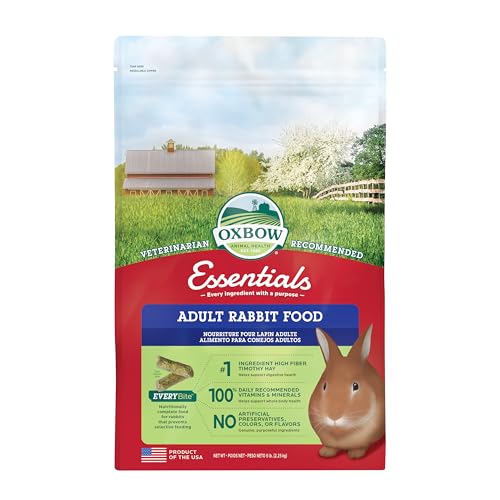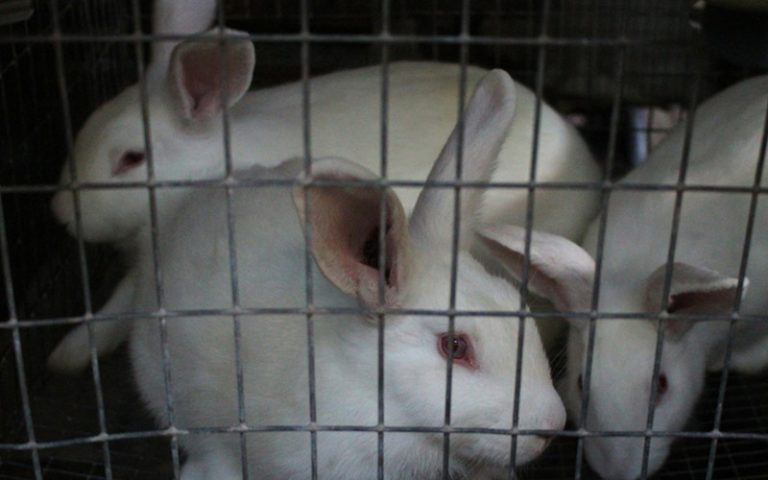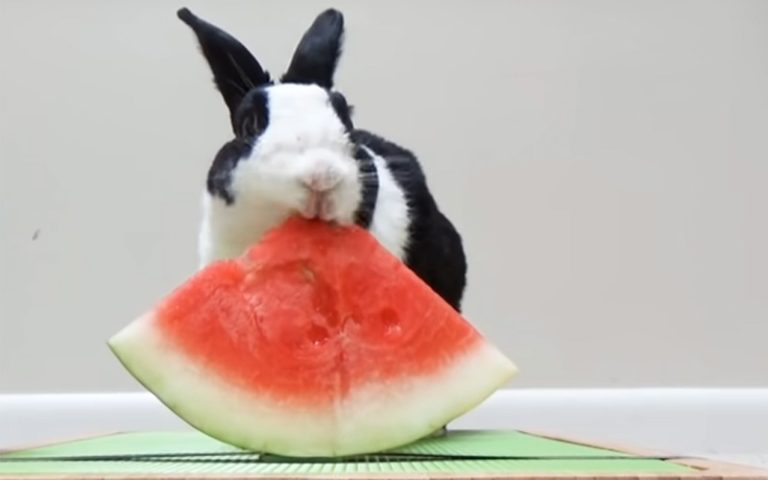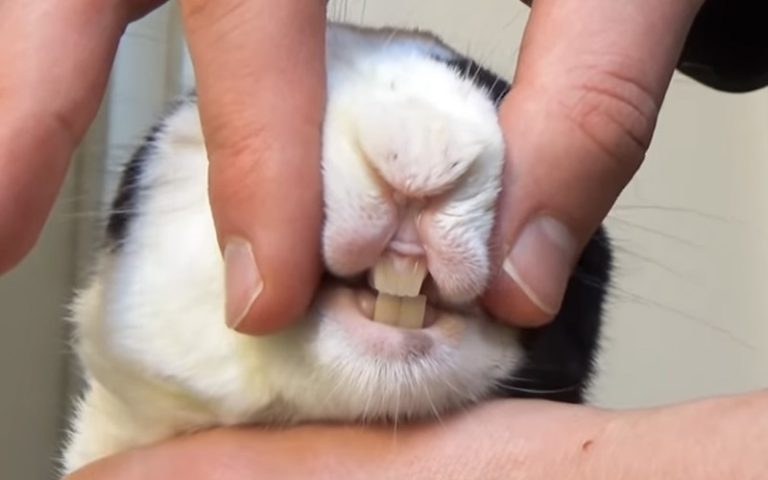Do Rabbits Eat Hosta Plants? Gardeners’ Guide to Protecting Greens
Yes, rabbits do eat hosta plants. They find both the leaves and flowers appealing.
Hostas are popular garden plants known for their lush foliage and vibrant colors. Unfortunately, these attractive plants can attract unwanted visitors, like rabbits. These small mammals are herbivores and enjoy munching on various garden plants, including hostas. They often target young, tender leaves, making hostas a frequent casualty in gardens.
Protecting your hostas from rabbits can be challenging, but understanding their eating habits helps. Implementing deterrents and choosing resistant varieties can safeguard your garden’s beauty. Knowing how to manage rabbits effectively can preserve your hostas and enhance your garden’s overall health.
Introduction To Hosta Plants And Rabbit Habits
Hosta plants are popular in gardens. Their lush foliage and vibrant colors attract many gardeners. But do rabbits enjoy these plants? Understanding rabbit habits helps answer this question.
Characteristics Of Hosta Plants
Hosta plants belong to the Asparagaceae family. They thrive in shady areas, making them perfect for gardens. Here are some key characteristics:
- Foliage: Large, heart-shaped leaves.
- Flowers: Bell-shaped blooms in summer.
- Colors: Varieties include green, blue, and yellow.
- Size: Can grow from a few inches to several feet.
| Hosta Variety | Leaf Color | Height |
|---|---|---|
| Hosta sieboldiana | Blue-green | 2-3 feet |
| Hosta ‘Gold Standard’ | Green with gold edges | 1-2 feet |
| Hosta ‘Patriot’ | Dark green with white edges | 1-2 feet |
Dietary Preferences Of Rabbits
Rabbits are herbivores. Their diet consists mainly of plants, vegetables, and fruits. They often nibble on garden plants. Here are some common dietary preferences:
- Greens: Lettuce, kale, and spinach.
- Fruits: Apples and berries.
- Vegetables: Carrots and peppers.
- Plants: Clover and dandelions.
Rabbits prefer soft, tender leaves. They may eat hostas if other foods are scarce. Protecting hostas is important in rabbit-prone areas.
Rabbits And Hostas: The Eating Dilemma
Hostas are popular garden plants. They are known for their beautiful foliage. However, many gardeners worry about rabbits. Do rabbits eat hostas? This question has puzzled many. Let’s explore the eating dilemma between rabbits and hostas.
Do Rabbits Find Hostas Appealing?
Rabbits often enjoy munching on various plants. Hostas, with their lush leaves, can be quite appealing. Here are some reasons why rabbits may target hostas:
- Soft leaves: Rabbits prefer tender, soft vegetation.
- Moisture: Hostas contain a lot of water, making them refreshing.
- Accessibility: Hostas are often low to the ground.
While not their top choice, rabbits will eat hostas when hungry. Protecting your garden is essential if you notice signs of nibbling.
Signs Of Rabbit Presence In Your Garden
Identifying rabbit activity can help in garden care. Look for these common signs:
| Sign | Description |
|---|---|
| Gnaw marks | Chewed edges on leaves and stems. |
| Droppings | Small, round pellets scattered around. |
| Footprints | Small paw prints in soft soil or mud. |
| Flattened plants | Plants appear crushed or bent down. |
Keep an eye out for these signs. Early detection helps protect your hostas. Consider using barriers or repellents to deter rabbits.
Assessing The Damage: Rabbits Vs. Other Pests
Understanding the differences in damage helps in garden care. Rabbits and other pests often target hosta plants. Identifying the source of damage is crucial for effective treatment.
Identifying Rabbit Damage On Hostas
Rabbit damage appears distinct. Look for these signs:
- Chewed Leaves: Edges are cleanly bitten.
- Short Stubs: Plants may be nibbled down to the ground.
- Tracks: Tiny paw prints near the plants.
- Droppings: Small, round pellets scattered around.
Rabbits typically feed at night. They prefer tender young leaves. Damage is often uniform across several plants.
Differentiating Between Pests
Other pests can also harm hostas. Here’s how to tell them apart:
| Pest Type | Damage Appearance | Signs |
|---|---|---|
| Rabbits | Cleanly bitten leaves and stubs. | Paw prints and droppings. |
| Slugs | Irregular holes in leaves. | Slime trails on the ground. |
| Deer | Unevenly torn leaves. | Large hoof prints nearby. |
| Insects | Wilting and discoloration. | Visible bugs on the leaves. |
Identifying the right pest leads to effective solutions. Each pest requires a different approach.
Strategies To Keep Rabbits Away
Keeping rabbits away from your garden is essential for protecting your plants. Using a combination of methods can be effective. Here are some proven strategies to deter these furry pests.
Natural Rabbit Repellents
Natural repellents can help keep rabbits at bay. They are safe for your garden and the environment. Here are some effective options:
- Garlic Spray: Mix garlic with water. Spray it on plants.
- Hot Pepper Spray: Blend hot peppers with water. Apply to leaves.
- Castor Oil: This oil can deter rabbits. Mix it with water and spray.
- Human Hair: Scatter hair around plants. It creates a strong scent.
Physical Barriers And Fencing Solutions
Using physical barriers can effectively stop rabbits. Fencing is a popular choice for many gardeners. Here are some options:
| Type of Barrier | Description | Height Required |
|---|---|---|
| Wire Fencing | Strong and durable. Keeps rabbits out. | At least 3 feet |
| Garden Netting | Lightweight mesh. Easy to install. | 2-3 feet |
| Chicken Wire | Flexible and cost-effective. Bury it underground. | 2 feet above ground |
Consider the following tips for effective fencing:
- Ensure the barrier is buried at least 6 inches deep.
- Use a height of at least 3 feet for maximum deterrence.
- Regularly inspect the barrier for any damage.
Implementing these strategies can help protect your hosta plants from rabbits.
Gardening Techniques For Rabbit-resistant Gardens
Creating a rabbit-resistant garden is essential for protecting your plants. Rabbits enjoy nibbling on various plants, including hostas. Using smart gardening techniques can keep your garden safe.
Hosta Varieties Less Attractive To Rabbits
Some hosta varieties are less appealing to rabbits. Choosing these can help protect your garden. Here are a few hosta types that rabbits tend to avoid:
| Hosta Variety | Characteristics |
|---|---|
| Hosta ‘Blue Angel’ | Large, blue-green leaves. |
| Hosta ‘Sum and Substance’ | Big, golden-green leaves. |
| Hosta ‘Empress Wu’ | Very large leaves, tall growth. |
These varieties are known for their toughness. They are less likely to be damaged by rabbit munching.
Companion Planting To Deter Rabbits
Companion planting is an effective way to repel rabbits. Planting certain herbs and flowers can create a barrier. Here are some plants that work well:
- Lavender: Strong scent that rabbits dislike.
- Marigolds: Bright flowers that deter pests.
- Garlic: Strong odor keeps rabbits away.
- Rosemary: Aromatic plant that rabbits avoid.
Using these plants around your hostas creates a protective shield. This technique enhances the garden’s beauty while keeping it safe.

Credit: www.pinterest.com
Cultivating A Healthy Hosta: Tips And Tricks
Hostas are beautiful plants that can thrive in many gardens. Proper care helps them grow strong. Here are some essential tips to cultivate healthy hostas.
Optimal Planting Conditions For Hostas
Hostas thrive in specific conditions. Here are the key factors for their success:
| Condition | Optimal Level |
|---|---|
| Sunlight | Partial to Full Shade |
| Soil Type | Well-drained, Moist Soil |
| pH Level | 6.0 to 7.5 |
| Watering | Regularly, Keep Soil Moist |
Choose a shaded spot for planting. Hostas prefer moist soil that drains well. Test the soil pH before planting. Aim for a balanced level between 6.0 and 7.5.
Routine Care To Strengthen Plants
Regular care helps hostas flourish. Follow these steps:
- Watering: Water deeply once a week.
- Mulching: Add mulch to retain moisture.
- Fertilizing: Use a balanced fertilizer in spring.
- Pruning: Remove dead leaves to encourage growth.
Monitor for pests like slugs and snails. Use organic methods to control these pests. Healthy hostas resist damage better. Regular care keeps them vibrant and lush.
When Rabbits Won’t Back Down: Additional Measures
Rabbits can be persistent garden intruders. They often ignore barriers and make a meal of your plants. When these furry foes refuse to back down, it’s time to take action.
Using Humane Traps
Humane traps can safely catch rabbits without harming them. Here’s how to use them effectively:
- Choose a live trap designed for rabbits.
- Place the trap near rabbit activity areas.
- Use bait like carrots or lettuce.
- Check the trap regularly to avoid stress for the rabbit.
After catching a rabbit, release it far from your garden. Ensure it has food and shelter in its new location.
Professional Pest Control Options
Sometimes, professional help is necessary. Pest control experts can provide solutions tailored to your situation:
| Service | Description |
|---|---|
| Exclusion Techniques | Experts can install barriers to keep rabbits out. |
| Population Control | They can advise on managing rabbit numbers safely. |
| Habitat Modification | Recommendations on changing your garden layout. |
These options can help protect your hosta plants from hungry rabbits. Always choose humane and eco-friendly methods.

Credit: www.youtube.com
Balancing Wildlife And Gardening: An Ethical Approach
Gardening brings joy and beauty. It also invites wildlife. Rabbits often munch on plants like hostas. Finding a balance between nature and your garden is key.
Understanding Rabbit Ecosystem Roles
Rabbits play important roles in our ecosystem:
- Food Source: They feed various predators.
- Soil Aeration: Their burrowing helps soil health.
- Plant Diversity: They help in seed dispersal.
Rabbits contribute to a thriving environment. They help keep nature in balance. Understanding their roles is vital for gardeners.
Ethical Considerations In Rabbit Control
Controlling rabbit populations needs thoughtfulness:
- Humane Methods: Use traps, not poison.
- Fencing: Protect gardens with barriers.
- Native Plants: Grow plants that attract other wildlife.
Consider these points for ethical rabbit control:
- Respect nature and its creatures.
- Choose eco-friendly solutions.
- Educate others about wildlife balance.
By making thoughtful choices, gardening can coexist with wildlife. This harmony benefits both gardeners and rabbits.
Conclusion: Coexisting With Rabbits
Coexisting with rabbits can be rewarding. These adorable creatures add charm to any garden. Understanding their habits helps maintain a healthy garden. Here, we explore effective strategies for harmony.
Summary Of Effective Strategies
Implementing strategies can protect your plants while keeping rabbits happy.
| Strategy | Description |
|---|---|
| Fencing | Use wire fences to protect vulnerable plants. |
| Repellents | Apply natural repellents like cayenne pepper. |
| Companion Planting | Grow plants that rabbits dislike, such as marigolds. |
| Mulching | Use mulch to deter rabbits and retain moisture. |
These strategies create a balance. Your garden remains beautiful while rabbits thrive.
Embracing Biodiversity In The Garden
Biodiversity enriches the garden ecosystem. A diverse garden attracts various wildlife. This includes beneficial insects and birds.
- Plant Variety: Grow different types of plants.
- Native Plants: Choose plants native to your area.
- Flowering Plants: Include flowers to attract pollinators.
Encouraging biodiversity helps maintain a natural balance. Rabbits find food without destroying your hostas. A thriving garden supports all life forms.
Credit: burnsvillemn.gov
Frequently Asked Questions
Do Rabbits Like Eating Hosta Plants?
Rabbits are known to nibble on hosta plants, particularly the tender leaves, which they find delicious.
Are Hosta Plants Safe For Rabbits?
Hosta plants are mildly toxic to rabbits, causing digestive issues if consumed in large amounts.
What Plants Do Rabbits Prefer Over Hostas?
Rabbits often prefer clover, dandelions, and leafy greens over hosta plants due to their higher nutritional value.
How To Protect Hostas From Rabbits?
Fencing, repellents, or planting rabbit-resistant plants can help keep rabbits away from hosta plants in your garden.
Conclusion
Yes, rabbits do eat hosta plants. They enjoy the tender leaves, especially in spring when the plants are young and fresh. Rabbits are attracted to the texture and moisture in hosta leaves, which makes them a common snack in gardens. If left unchecked, they can cause significant damage by eating the leaves down to the stem.
To protect your hostas, you may need to use barriers or repellents. Regular monitoring and early action can help save your plants from becoming rabbit food.
Happy gardening!






